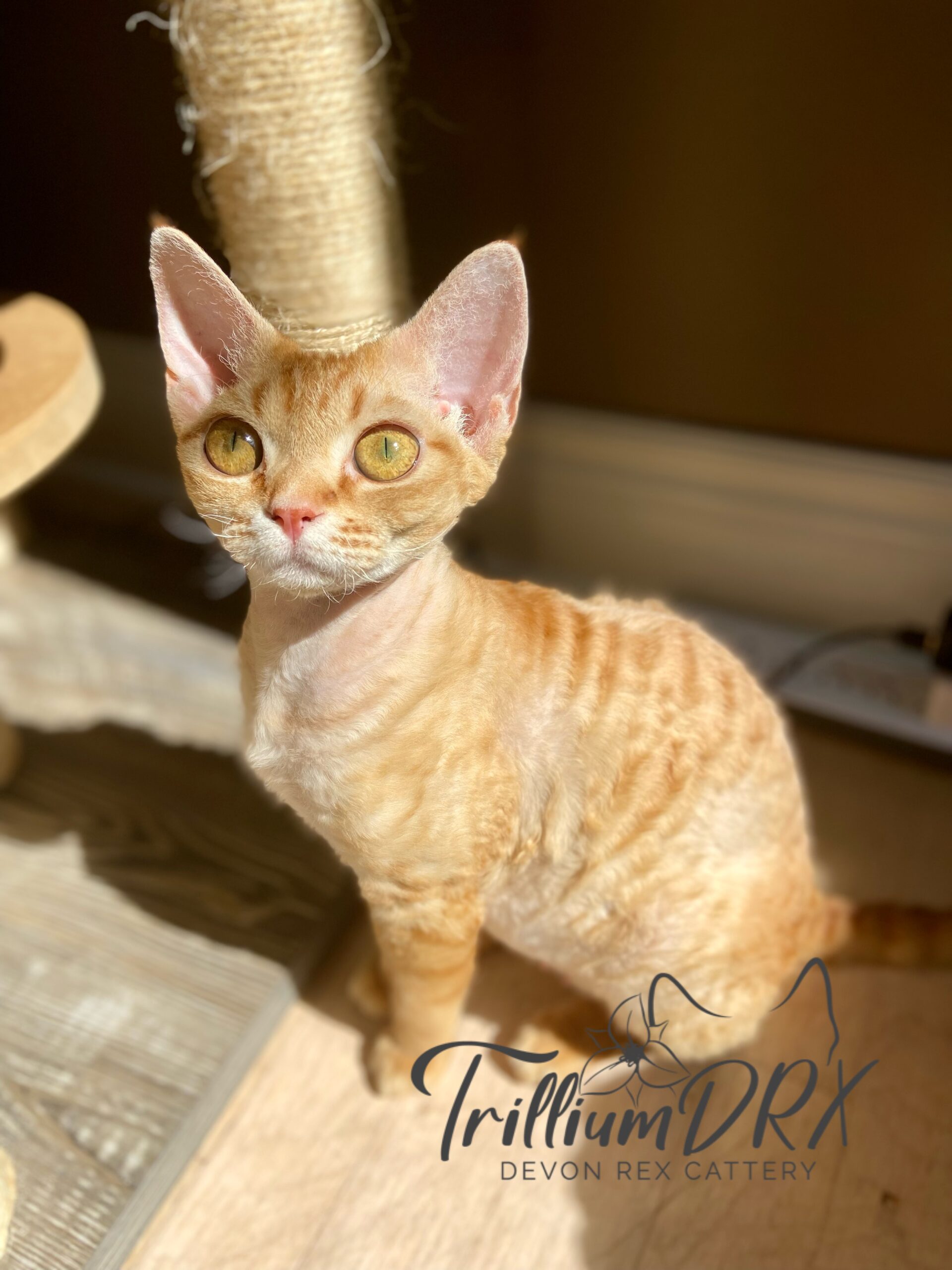
History of the Devon Rex
The Devon Rex cat was first discovered in the Devonshire region of England in 1960 when a woman, Beryl Cox, stumbled across a novel, curly-coated kitten, which she named Kirlee. Cox initially believed that the kitten was related to the Cornish Rex breed.
However, attempts to crossbreed Kirlee with Cornish Rex queens proved otherwise. It was discovered that an unrelated gene mutation was responsible for the wavy coat, among other uniquely Devon Rex features. Following the realization, Cox developed a more comprehensive breeding program to preserve Kirlee’s mutation.
In 1968, the first Devon Rex cat was imported to the United States, and by 1979, the breed received official recognition from the Cat Fanciers’ Association. Today, the Devon Rex is available from reputable breeders throughout the world.
Fun fact! The unique-looking breed is said to have inspired director Steven Spielberg’s E.T., based on his own Devon Rex.
Appearance
The Devon Rex is a small but mighty cat with a friendly temperament that is known for its unique, almost alien appearance. They have large eyes, large noses, high cheekbones, and low-set rounded ears. Sometimes, the ears bear small tufts of fur.
Devon Rexes have lean, muscular bodies, long, athletic legs, and large toes. Their short coats and prominent features make the neck and chest appear bony, but this cat is a powerful jumper. The cat usually weighs between six and nine pounds and stops growing at around 12 months.
The Devon Rex’s short coat is fragile with little to no guard hair and ranges from wavy to velvety in appearance. It also has very short and brittle whiskers.
Personality
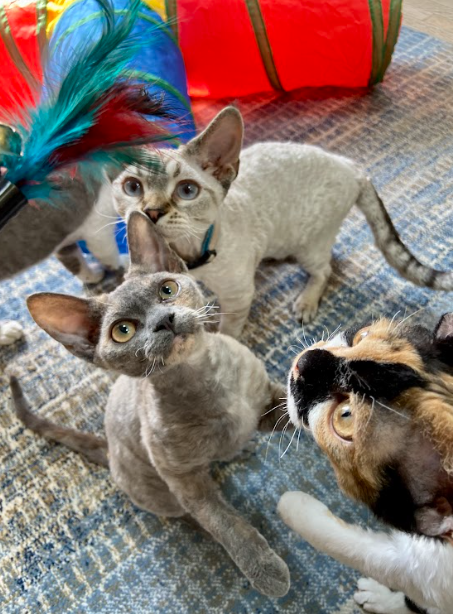
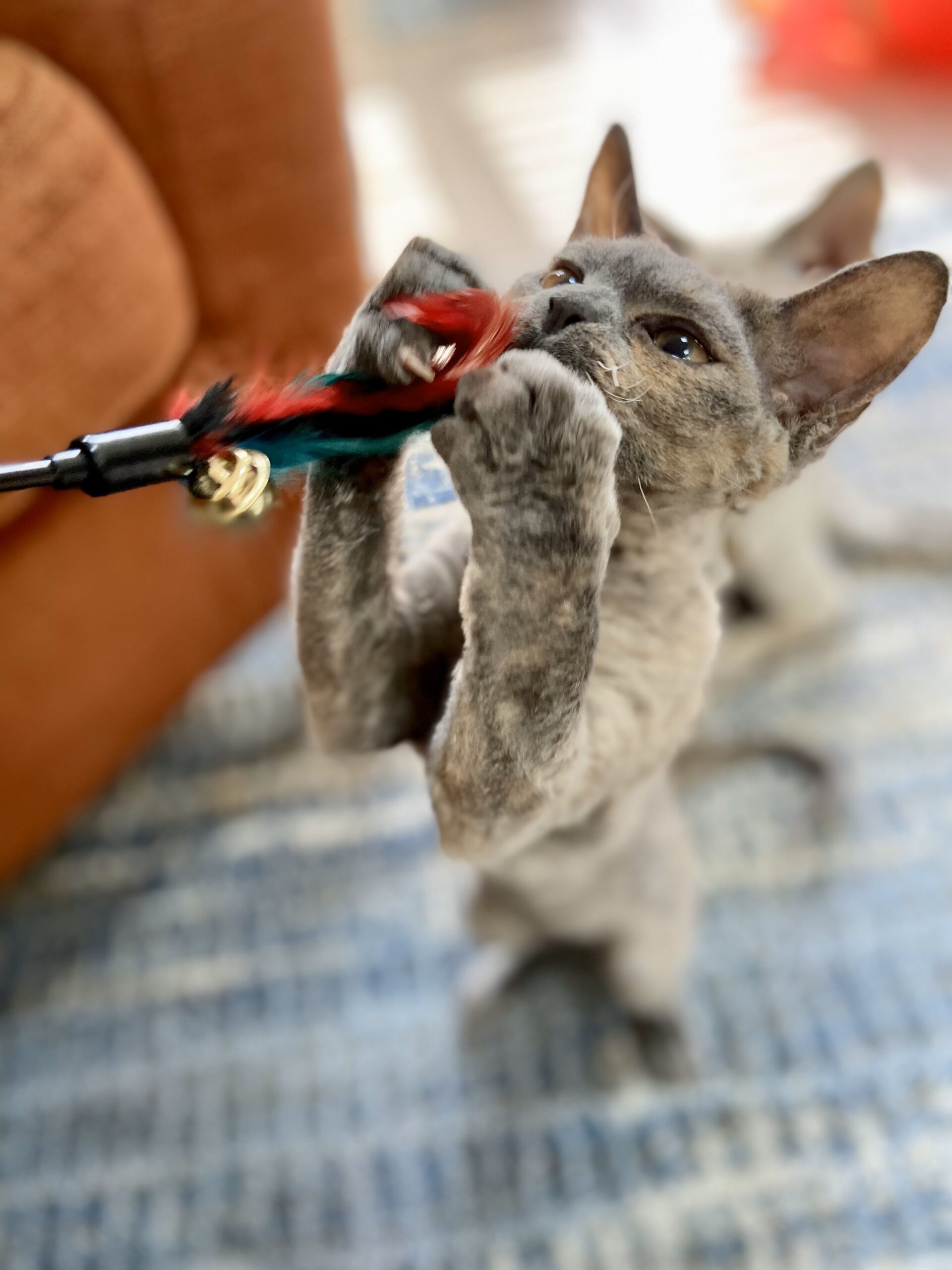
While not as vocal as other breeds, these cats make themselves known through their vibrant personality and playful behavior.
The typical Devon is active, mischievous, playful, and very people oriented. They have been described as a cross between a cat, a dog and a monkey (or, more famously, as “a monkey in a cat suit”). They are high-jumpers and will try to occupy any space large enough to admit them. With this trait, they are often found in odd nooks and crannies of a closet, shelf, or laundry basket. Devons prefer to be in high places and will go to great lengths to get to the highest spot in a room. They are relatively easy to take care of. Most Devons also have one central person to whom they devote their love, and on whom they will most often lie and rub. They like to playfully nip, and love to play throughout their lives.
They are a very intelligent breed; the typical Devon Rex can be trained to walk on a leash, fetch or perform all manner of tricks usually associated with canines, like jump, heel and tag to name a few.
Another common trait is their show of affection: they have a particular penchant for being close to the head or neck of their human companions and can often be found mounted upon one’s shoulder or nestled into the cranny created by the neck and shoulder when one is prone. The Devon Rex is a faithful companion and will usually follow the object of their affection from room to room, waiting for the opportunity to leap onto their arms, lap, or shoulder.
The Devon Rex’s outgoing personality has also a natural inclination toward exercise. They require ample exercise, which you can conduct through teaching tricks and providing stimulating toys and surfaces on which to climb and jump. Training can strengthen the bond between you and your cat while giving much-needed mental stimulation to this intelligent breed. Devon Rexes are known for seeking out lofty spots during playtime or rest, so create spaces that accommodate your cat’s energy needs. Devons also like a warm place in the sun and should be provided with areas of warmth in the winter.
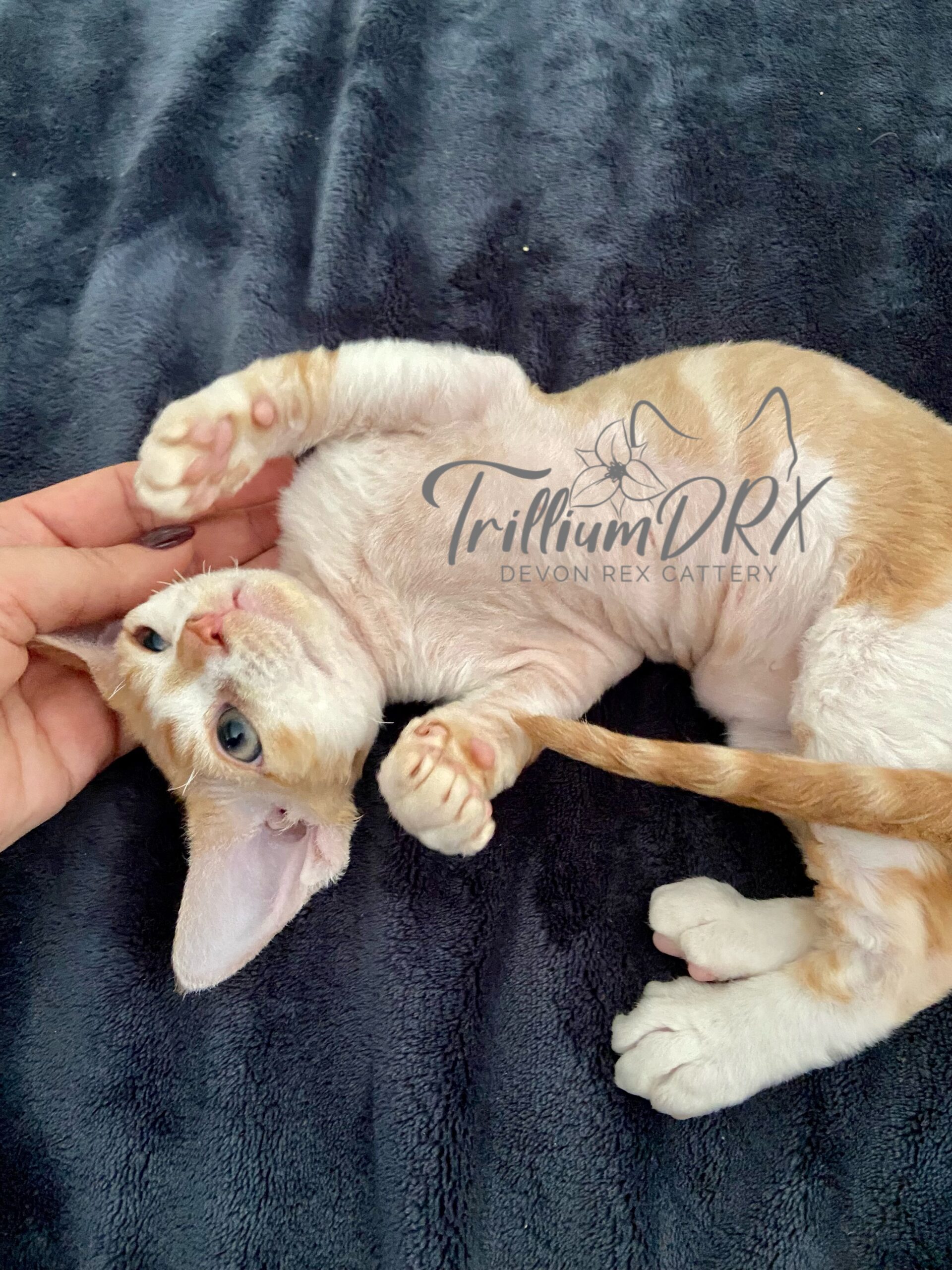
Devon Rex Training
Devon Rex cats are highly trainable and eager to learn, according to the Devon Rex Breed Club. Fun fact: Kirlee, the original Devon Rex cat, was a natural performer that could walk on a tightrope and fetch toys.
Today’s Devon Rex cats share Kirlee’s eagerness to please and entertain their pet parents, even if walking on a tightrope may not be your kitty’s first trick. With positive reinforcement training, you can teach your Devon Rex to do a variety of other fun activities, such as fist bumping, recall, and more.
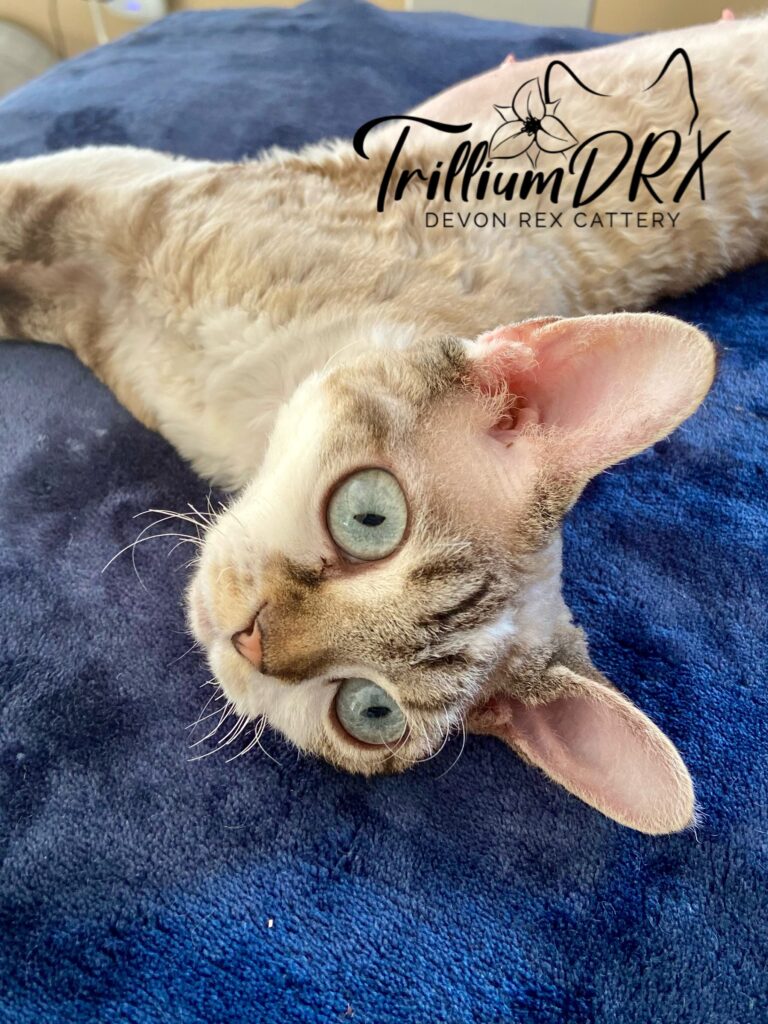
Are Devon Rex Cats Hypoallergenic?
All cats have the protein allergen Fel D1 in their saliva, however, Devon Rex cats tend to produce less of Fel D1 protein in their saliva than most other cat breeds, meaning they are more likely to be better tolerated by allergy sufferers. Furthermore, Devon Rex cats have a wavy coat that does not shed much (soft down hair that makes up most cats’ undercoats), which minimizes the spread of dander and other allergens that can trigger allergy sufferers.
As a result, Devon Rex cats are in many cases a viable option for allergy sufferers compared to other breeds of cat. In fact many people who are normally allergic to cats in general find that they can be around Devon Rex’s without any allergic reactions at all.
